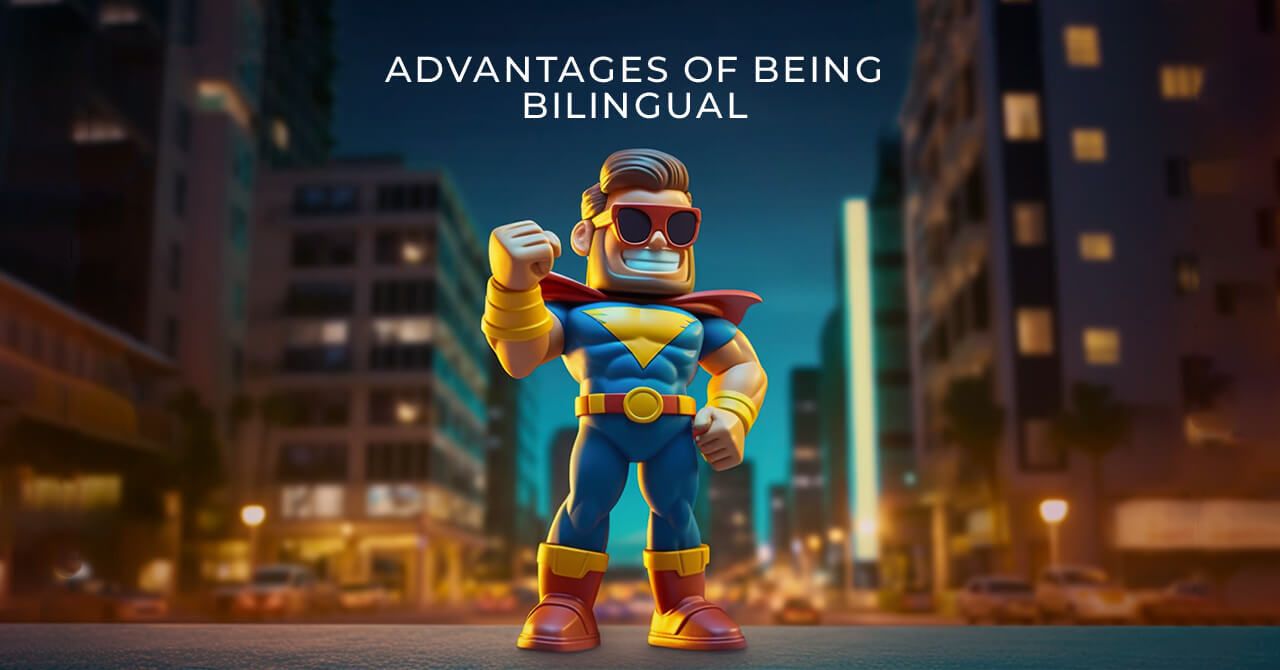
What Does It Mean to Be Bilingual and Why It Is Awesome?
Being bilingual comes with a multitude of advantages. Improved cognitive abilities are probably the most impressive one.
What is the definition of bilingualism?
It involves a deep knowledge of the vocabulary, grammar, and cultural nuances of each language. Bilingualism offers numerous cognitive, social, and cultural advantages, making it an incredible skill to possess.
What are the advantages of being a bilingual person?
Being bilingual comes with a multitude of advantages. Improved cognitive abilities are probably the most impressive one. Using two distinct languages interchangeably leads to greater mental flexibility. It exercises the brain and keeps it sharp! Since it also improves memory functions, bilingualism can also positively impact academic performance, particularly in areas such as reading, writing, and problem-solving.
This awesome aptitude also results in improved communication skills. It allows you to make meaningful relationships with a wider range of people, both socially and professionally. It opens doors to new cultures, experiences, and opportunities.
Bilingualism is also a lucrative trait to have, as it increases career prospects. In today’s globalized world, employers value bilingualism, which can make you a desirable candidate in various industries, expanding your job prospects and potentially leading to better career opportunities.
The benefits are not limited to a particular age. Bilingual children often have more success in educational settings, but the elderly can also benefit a lot from using multiple languages. Bilingualism assists in warding off cognitive decline associated with aging and neurodegenerative disorders like Alzheimer’s disease.
Does bilingualism really change the brain?
Multiple studies have shown that bilingualism can have structural and functional effects on the brain. Individuals who are bilingual often exhibit a higher density of gray matter in specific areas of the brain linked with language processing, attention, and executive control, compared to those who are monolingual. These structural differences suggest that bilingualism can shape the brain’s structure. Moreover, the constant need to manage and switch between two languages appears to strengthen the brain’s executive control system, leading to more efficient cognitive processes.
Bilingualism is thought to promote neuroplasticity, which refers to the brain’s ability to adapt and reorganize itself. The continuous interaction with multiple languages challenges the brain to establish and strengthen new neural connections, fostering a more flexible and adaptable brain.
Types of bilingualism: simultaneous vs. sequential acquisition
Depending on the time when the learning occurs, ASHA recognizes two types of bilingualism: simultaneous (when you’re born and raised in a bilingual environment) and sequential (when the learning begins after the age of 3).
Children who are introduced to two languages from their infancy naturally develop proficiency in both. These early bilinguals often develop a native-like accent in both languages, as their acquisition occurs during the sensitive period for phonetic development. Also, growing up bilingual allows for a strong connection to both cultures, providing a solid foundation for bicultural identity development.
How to become a bilingual
Bilingualism formulated later in life involves learning after the critical period of language development, often during adolescence or adulthood. Language learning strategies and formal instruction play a more prominent role in this process. That may result in a non-native accent or challenges with pronunciation. However, with dedicated practice, individuals can still achieve a high level of proficiency and effective communication.
LiveXP can be the best instrument for achieving expertness in a second or third language. It is a language learning platform that offers more than 30 languages to master with tutors. It has a wide selection of tutors for your choice. As it is an important decision to choose your master, on LiveXP, you have a lot of filters to choose the perfect match tutor. You can even find a like-minded teacher who shares your hobbies and interests. A personalized approach from a language tutor is the best way to learn any language, even the hardest one.
Regardless of your age during the language-learning process, you can only benefit from using two languages. If you need help on your language-learning journey from a friendly and qualified tutor, book a trial lesson now!
Hello! My name is Valentina. Book digesting is my specialty. I transform book ideas into easy-to-follow summaries, articles, study guides, reviews, essays, analyses, slides, or e-books.

